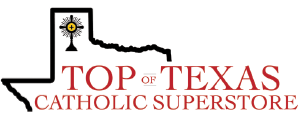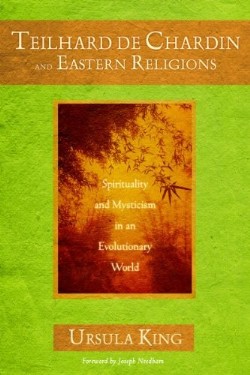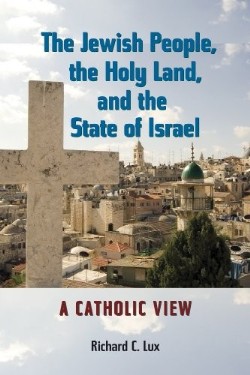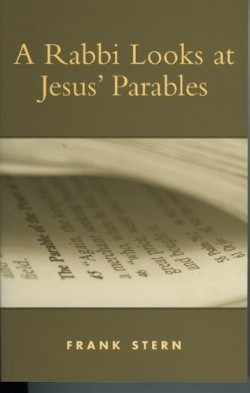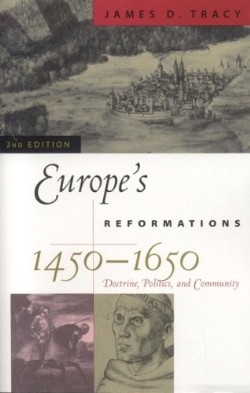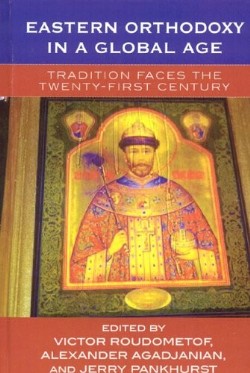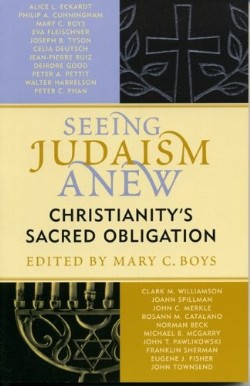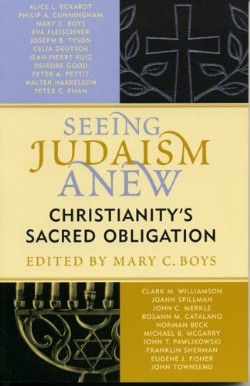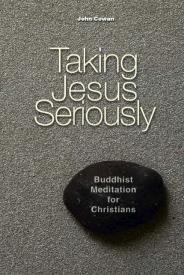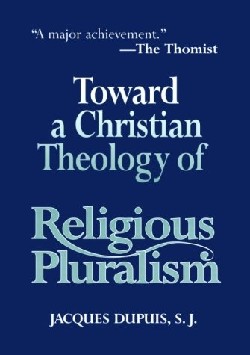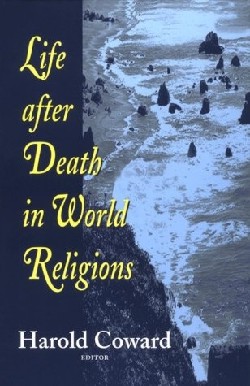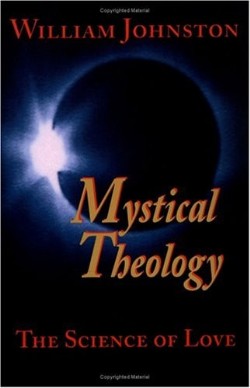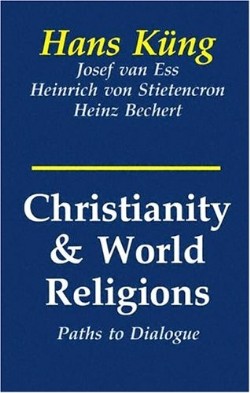Other Religions
Showing all 12 resultsSorted by latest
-
Rabbi Looks At Jesus Parables
$55.00Add to cartIntroduction
The Search For Paradise
Jesus Teaches In His Hometown Synagogue
The Parable Of The Sower
Jesus Teaches Of The Wheat And The Weeds
Other Parables About The Kingdom Of God
More Parables About The Kingdom Of God
Parables About Servants And Workers
Parables About Lamps, Lights, Salt And Cities
Parables About Vineyards, Orchards And Fields
Parables Dealing With Sheep And Money
The Parable Of A Rich Man Who Decided To Enjoy Himself
Parables About Dinners And Banquets
Parables About Fathers And Sons
Special People
The Parable Of The Priest, The Levite, And The Samaritan
The Rich Man, The Beggar, And The Unclean Spirit
Two Parables In John
The Last Parables
Conclusions
The Secrets Jesus Taught
Bibliography
Index
About The Author
Additional Info
Intended to appeal to both Christians and Jews,A Rabbi Looks at Jesus’ Parables is an introduction to the teachings of Jesus, and compares the similarities and differences in Jesus’ thinking to other Jewish sources from first-century Palestine. Each chapter uncovers hidden messages within each of Jesus’ parables, and discusses each parable within its first-century religious and historical context. The book attempts to build bridges of understanding between Christians and Jews by exploring the notion that we share a common history -
Europes Reformatios 1459-1650
$52.00Add to cartPart One: Introduction
Premises
The Reformation In European Perspective
Part Two: Doctrine To Live By
Late Medieval Background
Martin Luther, To 1521
The German And Swiss Reformation, 1521-1526
The German And Swiss Reformation, 1526-1555
The European Reformations
Part Three: Politics
The Wars Of Italy, 1494-1559
Wars Of Religion, 1562-1648
The European Reformations
England’s Reformations, 1527-1660
Part Four: Society And Community
Late Medieval Background
The German And Swiss Reformation
Reformations Across Europe
Europe’s Reformations In Global Perspective
Additional Info
In this widely praised history, noted scholar James D. Tracy offers a comprehensive, lucid, and masterful exploration of early modern Europe’s key turning point. Establishing a new standard for histories of the Reformation, Tracy explores the complex religious, political, and social processes that made change possible, even as he synthesizes new understandings of the profound continuities between medieval Catholic Europe and the multi-confessional sixteenth and seventeenth centuries. This revised edition includes new material on Eastern Europe, on how ordinary people experienced religious change, and on the pluralistic societies that began to emerge.Reformation scholars have in recent decades dismantled brick by brick the idea that the Middle Ages came to an abrupt end in 1517. Martin Luther’s Ninety-five Theses fitted into an ongoing debate about how Christians might better understand the Gospel and live its teachings more faithfully. Tracy shows how Reformation-era religious conflicts tilted the balance in church-state relations in favor of the latter, so that the secular power was able to dictate the doctrinal loyalty of its subjects. Religious reform, Catholic as well as Protestant, reinforced the bonds of community, while creating new divisions within towns, villages, neighborhoods, and families. In some areas these tensions were resolved by allowing citizens to profess loyalty both to their separate religious communities and to an overarching body-politic. This compromise, a product of the Reformations, though not willed by the reformers, was the historical foundation of modern, pluralistic society.
Richly illustrated and elegantly written, this book belongs in the library of all scholars, students, and general readers interested in the origins, events, and legacy of Europe’s Reformation.
Features
Offers a detailed glossary and suggested readings
Richly illustrated with over 90 paintings, maps, and drawings
An ideal introduction to the Reformation courses on early modern Europe
-
Eastern Orthodoxy In A Global Age
$111.00Add to cartForeword
Sabrina P. Ramet
PrefaceIntroduction: Eastern Orthodoxy In A Global Age: Preliminary Considerations
Alex Agadjanian And Victor Roudometof
East European ExperiencesGlobalization And Identity Discourse In Russian Orthodoxy
Alexander Agadjanian And Kathy Rousselet
From Hot War To Cold Integration? Serbian Orthodox Voices On Globalization And The European Union
Klaus Buchenau
Orthodoxy As Public Religion In Post-1989 Greece
Victor Roudometof
Church, Identity, Politics: Ecclesiastical Functions And Expectations Toward Churches In Post-1989 Romania
Gavril Flora And Georgina Szilagyi
Globalization, Nationalism, And Orthodoxy: The Case Of Ukranian Nation-Building
Victor Yelenski
Comparative Perspectives And Transnational ConnectionsOrthodox Christianity, Rationalization, Modernization: A Reassessment
Vasilos N. Makrides
A Transnational Religious Community Gathers Around An Icon: The Return Of The Tsar
Nina Schmit
Living Eastern Orthodox Religion In The United States
Dmitro Volkov
The Greek Orthodox Church In The US: Crisis Or Transition?
George Kouvetaris
Bibliographical NotesIndex
Additional Info
Despite over 200 million adherents, Eastern Orthodox Christianity attracts little scholarly attention. While more-covered religions emerge as powerful transnational forces, Eastern Orthodoxy appears doggedly local, linked to the ethnicity and land of the now marginalized Eastern Europe. But Eastern Orthodoxy in a Global Age brings together new and nuanced understandings of the Orthodox churches–inside and outside of Eastern Europe–as they negotiate an increasingly networked world. The picture that emerges is less of a people stubbornly refusing modernization, more of a people seeking to maintain a stable Orthodox identity in an unstable world. For anyone interested in the role of Eastern Orthodoxy in the 21st century, this volume provides the place to begin. -
Seeing Judaism Anew
$49.00Add to cartPreface
Philip A. Cunningham And Ruth Langer
A Sacred Obligation
The Christian Scholars Group On Christian-Jewish Relations
Introductory EssaysIntroduction
Mary C. Boys
The Shoah And Jewish Christian Relations
Eva Fleischner
God’s Covenant With The Jewish People Endures ForeverThe Enduring Covenant
Mary C. Boys
Jesus Of Nazareth Lived And Died As A Faithful JewJesus-A Faithful Jew
Joseph B.Tyson
The Death Of Jesus
Joseph B.Tyson
Ancient Rivalries Must Not Define Christian-Jewish Relations TodayAncient Rivalries And New Testament Interpretation: An Example From The Acts Of The Apostles
Celia Deutsch
Ancient Jewish-Christian Rivalries In The Shadow Of Empire: The Tensions Of The Past As Lessons For The Present
Jean-Pierre Ruiz
Christian Feminism And Anti-Judaism
Mary C. Boys
Jewish Feminist Scholars: Vibrant Voices In New Testament Study
Deirdre Good
Judaism Is A Living Faith, Enriched By Many Centuries Of Development“In Every Generation”: Judaism As A Living Faith
Peter Pettit And John Townsend
The Bible Both Connects And Separates Jews And ChristiansContemporary Christians And Israel’s Ancient Scriptures
Walter Harrelson
Affirming God’s Enduring Covenant With The Jewish People Has Consequences For Christian Understandings Of SalvationJesus As The Universal Savior In The Light Of God’s Eternal Covenant With The Jewish People: A Roman Catholic Perspective
Peter Phan
The Universal Significance Of Christ: A Protestant Perspective
Clark M. Williamson
Christians Should Not Target Jews For ConversionCovenant And Conversion
Philip A. Cunningham
Targeting Jews For Conversion Contradicts Christian Faith And Contravenes Christian Hope
Joann Spillman
Christian Worship That Teaches Contempt For Judaism Dishonors GodThe God Of Israel And Christian Worship
John Merkle
A Matter Of Perspective: An Alternative Reading Of Mark 15:38
Rosann Catalano
Translations Of The New Testament For Our Time
Norman Beck
We Affirm The Importance Of The Land Of Israel For The Life Of The Jewish PeopleThe Land Of Israel In The Cauldron Of The Middle East: A Challenge To Christian-Jewish Relations
Michael McGarry
Christians Should Work With Jews For The Healing Of The WorldThe Challenge Of Tikkun Olam For Jews And Christians
John T. Pawlikowski
Christian-Jewish Relations After The Shoah: Hisorical ReflectionsThe Road To Reconciliation: Protestant
Additional Info
In September 2002, twenty-one prominent Catholic and Protestant scholars released the groundbreaking document “A Sacred Obligation,” which includes ten statements about Jewish-Christian dialogue focused around a guiding claim: “Revising Christian teaching about Judaism and the Jewish people is a central and indispensable obligation of theology in our time.” Following the worldwide reception of their document, the authors have expanded their themes into Seeing Judaism Anew. The essays in this volume offer a conceptual framework by which Christians can rethink their understanding of the church’s relationship to Judaism and show how essential it is that Christians represent Judaism accurately, not only as a matter of justice for the Jewish people, but also for the integrity of Christian faith.By linking New Testament scholarship to the Shoah, Christian liturgical life, and developments in the church, this volume addresses the important questions at the heart of Christian identity, such as: Are only Christians saved? Why did Jesus die? Why is Israel so important to Jews, and what should we think about the conflict in the Middle East? How is Christianity complicit in the Holocaust? What is important about Jesus being a Jew?
-
Seeing Judaism Anew
$124.00Add to cartPreface
Philip A. Cunningham And Ruth Langer
A Sacred Obligation
The Christian Scholars Group On Christian-Jewish Relations
Introductory EssaysIntroduction
Mary C. Boys
The Shoah And Jewish Christian Relations
Eva Fleischner
God’s Covenant With The Jewish People Endures ForeverThe Enduring Covenant
Mary C. Boys
Jesus Of Nazareth Lived And Died As A Faithful JewJesus-A Faithful Jew
Joseph B.Tyson
The Death Of Jesus
Joseph B.Tyson
Ancient Rivalries Must Not Define Christian-Jewish Relations TodayAncient Rivalries And New Testament Interpretation: An Example From The Acts Of The Apostles
Celia Deutsch
Ancient Jewish-Christian Rivalries In The Shadow Of Empire: The Tensions Of The Past As Lessons For The Present
Jean-Pierre Ruiz
Christian Feminism And Anti-Judaism
Mary C. Boys
Jewish Feminist Scholars: Vibrant Voices In New Testament Study
Deirdre Good
Judaism Is A Living Faith, Enriched By Many Centuries Of Development“In Every Generation”: Judaism As A Living Faith
Peter Pettit And John Townsend
The Bible Both Connects And Separates Jews And ChristiansContemporary Christians And Israel’s Ancient Scriptures
Walter Harrelson
Affirming God’s Enduring Covenant With The Jewish People Has Consequences For Christian Understandings Of SalvationJesus As The Universal Savior In The Light Of God’s Eternal Covenant With The Jewish People: A Roman Catholic Perspective
Peter Phan
The Universal Significance Of Christ: A Protestant Perspective
Clark M. Williamson
Christians Should Not Target Jews For ConversionCovenant And Conversion
Philip A. Cunningham
Targeting Jews For Conversion Contradicts Christian Faith And Contravenes Christian Hope
Joann Spillman
Christian Worship That Teaches Contempt For Judaism Dishonors GodThe God Of Israel And Christian Worship
John Merkle
A Matter Of Perspective: An Alternative Reading Of Mark 15:38
Rosann Catalano
Translations Of The New Testament For Our Time
Norman Beck
We Affirm The Importance Of The Land Of Israel For The Life Of The Jewish PeopleThe Land Of Israel In The Cauldron Of The Middle East: A Challenge To Christian-Jewish Relations
Michael McGarry
Christians Should Work With Jews For The Healing Of The WorldThe Challenge Of Tikkun Olam For Jews And Christians
John T. Pawlikowski
Christian-Jewish Relations After The Shoah: Hisorical ReflectionsThe Road To Reconciliation: Protestant
Additional Info
In September 2002, twenty-one prominent Catholic and Protestant scholars released the groundbreaking document “A Sacred Obligation,” which includes ten statements about Jewish-Christian dialogue focused around a guiding claim: “Revising Christian teaching about Judaism and the Jewish people is a central and indispensable obligation of theology in our time.” Following the worldwide reception of their document, the authors have expanded their themes into Seeing Judaism Anew. The essays in this volume offer a conceptual framework by which Christians can rethink their understanding of the church’s relationship to Judaism and show how essential it is that Christians represent Judaism accurately, not only as a matter of justice for the Jewish people, but also for the integrity of Christian faith.By linking New Testament scholarship to the Shoah, Christian liturgical life, and developments in the church, this volume addresses the important questions at the heart of Christian identity, such as: Are only Christians saved? Why did Jesus die? Why is Israel so important to Jews, and what should we think about the conflict in the Middle East? How is Christianity complicit in the Holocaust? What is important about Jesus being a Jew?
-
Taking Jesus Seriously
$24.95Add to cartIn this book the words of Jesus become clearer when matched with the practices and insights of Buddhist meditation. This book presents a Christian way to implement the words of Jesus by looking inside to see what stands between the reader and God’s kingdom. Cowan connects everyday examples and Jesus’ words to the method of Buddhist vipassana or insight meditation by offering instruction, perception, and guidance. With practice, readers can begin to notice what is actual, leave anxiety to the Father, accept pain, and see the world as a child would. This book is designed to be read over twelve weeks while practicing 20-30 minutes of daily meditations. Each chapter includes questions and answers.
-
Mystical Theology : The Science Of Love
$24.00Add to cartFrom the earliest centuries there has existed a Christian theology of mysticism, defining the state which Bernard Lonergan called a “being in love with God.” St. John of the Cross wrote such a theology for the sixteenth century, calling it “the science of love.” Now, William Johnston, one of the great spiritual writers of our time, attempts to do the same for the twenty-first century.
In Part One of Mystical Theology Johnston surveys Christian mysticism through the centuries. Johnson shows that such a theology today must dialogue with modern science and with Eastern religions. Part Two provides this dialogue, where Johnston engages Einstein’s theories as well as Zen Buddhism. In Part Three, it becomes clear how the “science of love” is no longer an esoteric discipline for monks and nuns. In Johnston’s writing it becomes accessible to all modern people grappling with problems of sexuality, social justice, world peace, and the protection of the environment.
Mystical Theology is indispensable to all those seeking guidance as well as intellectual and historical foundations of the Christian mystical experience today.
-
Christianity And World Religions
$33.00Add to cartKung joins with three esteemed colleagues to address the question: “Can we break through the barriers of noncommunication, fear, and mistrust that separate the followers of the world’s great religions?” The authors analyze the main lines of approach taken by Islam, Hinduism, and Buddhism, and give Christian responses to the values and challenges each tradition presents.
